What is it like to be an organic beekeeper?
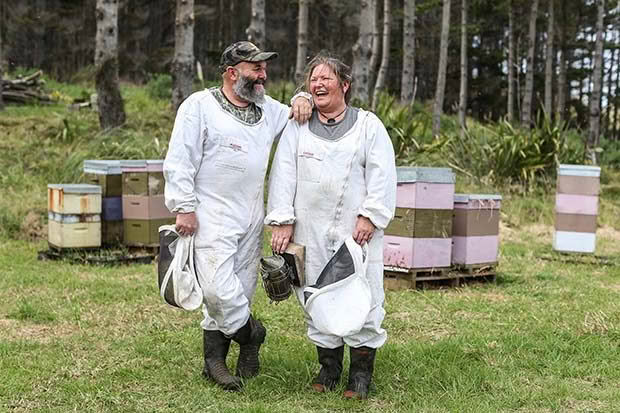
Terry & Karlene Shaw-Toomey. Beekeepers and owners of Earthbound Honey, Bethells Beach, West Auckland.

It’s not easy being an organic beekeeper when bees can forage as far as 5km for their food.
Words: Emma Rawson Photos: Chris Skelton
Spread some of Terry and Karlene Shaw-Toomey’s pohutukawa honey on a piece of toast and you might find pieces of pollen or a speck of wax. A sense of grit not only sums up the uniqueness of their moreish, raw, unpasteurised honeys but also the couple’s outlook on life. When a debilitating leg injury cut short Terry’s career as a production manager in the print and communications industry, instead of settling for comfortable desk jobs, the couple decided to make a business out of bees in the heart of native bush at Bethells Beach, West Auckland.
“My injury gave me time to reassess my options,” says Terry, who had several reconstructive surgeries to mend the severely broken leg and bone marrow leakage he suffered after a truck accident.
“As I was already a hobbyist beekeeper, it seemed a logical idea to give beekeeping a go on a larger scale. Looking back, I now realise that the corporate environment did not bring out the best in me anyway, health-wise and psychologically. Having the time to appreciate the wonderful environment I live in, my family and friends, I’ve become a more patient, whole person,” says Terry.
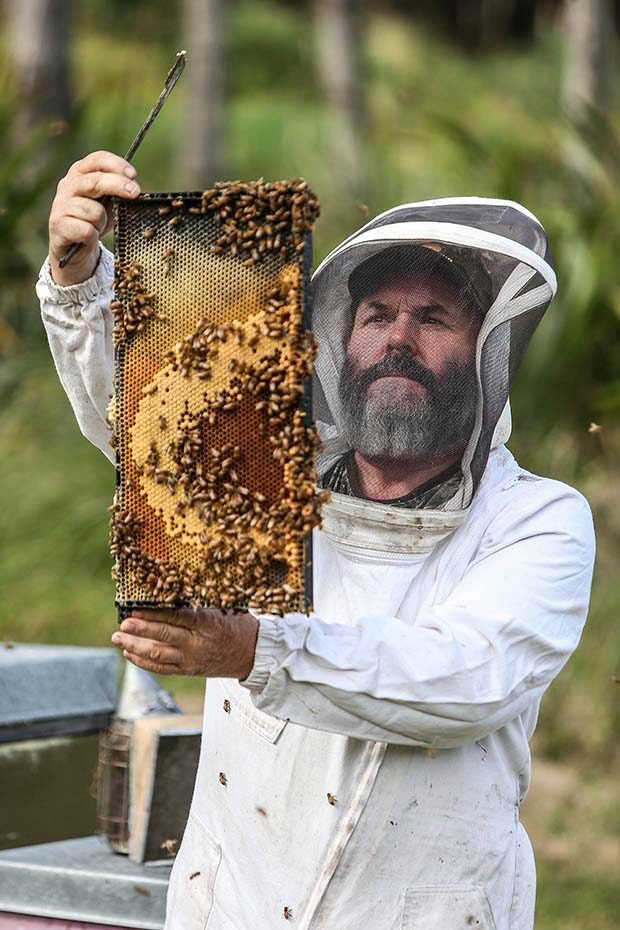
One clifftop pohutukawa grove where the couple keeps a handful of hives has chocolate-box beauty – in fact, Cadbury used the spot in a recent commercial. In spots like these it’s easy to understand how Terry and Karlene, who also worked in the print industry, could leave behind 80-hour weeks and corporate life. That’s not to say it hasn’t been hard work growing their company Earthbound Honey.
Founded in 2006, they have expanded from selling manuka and pohutukawa honey in one fruit and vege shop, to having their honey stocked in 40 stores across New Zealand. They also grow most of their own veges, and raise sheep and beef to supplement their income.
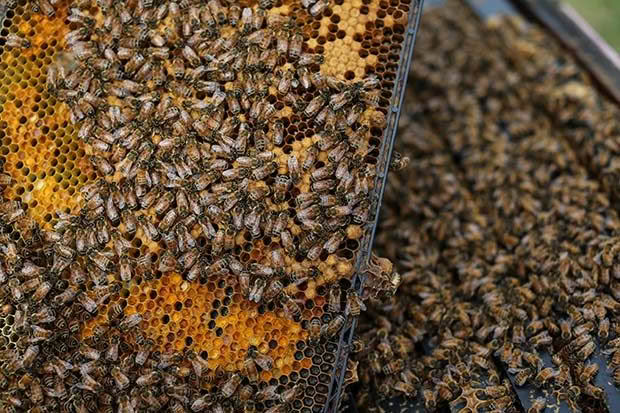
“It’s not easy but we were lucky we’d been in well-paid jobs prior to this and didn’t have much debt, so when we got to Bethells we just hunkered down and made a lifestyle around our property,” says Karlene.
Earthbound is certified organic, not an easy feat when bees forage as far as five kilometres. Their hives, placed in the most remote destinations, ensure the bees don’t forage in areas with pesticides.
“It’s not easy; it’s hard to grow your bees when you’re organic because you can’t feed them and whack in any old strips,” says Karlene.
“We have a different outlook to the commercial beekeepers. They have a lot more hives and everything is done very quickly but we take a lot of time on the hives. Most beekeepers tend to a couple of hundred hives in a day, but we do 40 or 50.”
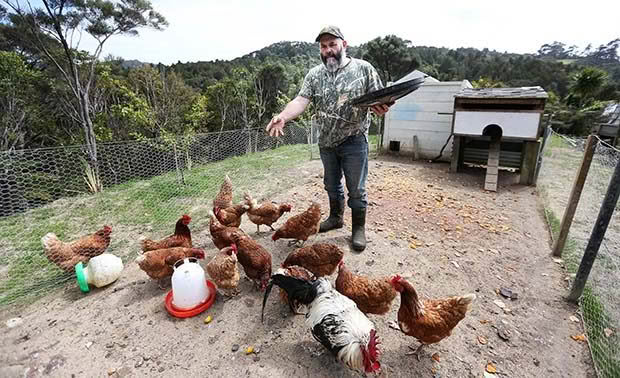
Terry Shaw-Toomey with the family chickens.
To save on travel and fuel emissions, the couple extract their honey out in the thick of the bush. Harvesting honey in the open next to the hive is usually a no-no in beekeeping, but the couple has it down to a fine art.
“The honey gets scraped into a drum on the truck, and we do that when the honey flow is still on. That way the bees don’t get bothered by what we’re doing; they’re still looking for honey. We know that honey flows from November to February, and if it’s a drought year, it will be over sooner. We can also tell when the honey flow is ending because the bees start getting agitated and pinging off our suits wanting to sting us,” she says.
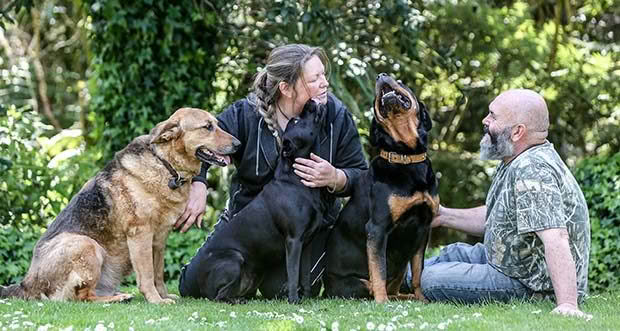
That’s not the only thing the couple does differently. They forgo pasteurisation and only lightly filter their honey.
“In our mind, heating honey would kill a lot of its natural activity, whether it’s manuka or not. We also minimally filter, so you might find some pollen or propolis in there, and you might even find a bee wing.
The honey still has wax in it, but those properties from the hive are really important.”
Demand for the couple’s raw goodness is growing, and there’s interest from China in their products says Karlene.
“We’ve grown our business slowly and have been careful not to compromise our standards due to costs, but now it’s time to step it up.”
TERRY’S TIPS FOR GOING ORGANIC
“Organic certification takes a minimum of four years. Before thinking about organic beekeeping, you’ll need to consider whether or not you have land that’s far from pesticides. This is getting really difficult to find. We will be looking at our certification options over the next 12 months that will better suit the export market.”
Are you interested in learning more about bees? Check out our beekeeping edition In Your Backyard: Beekeeping
 This article first appeared in NZ Life & Leisure Magazine.
This article first appeared in NZ Life & Leisure Magazine.
